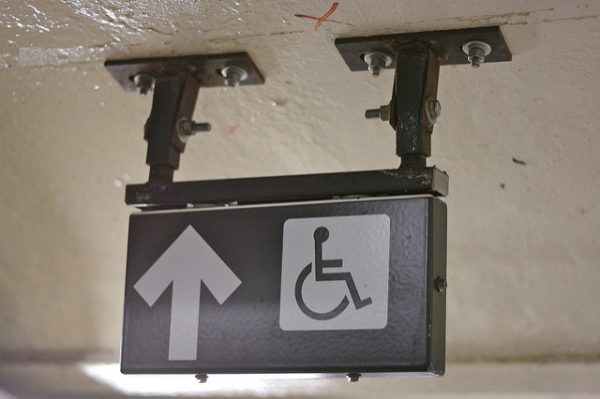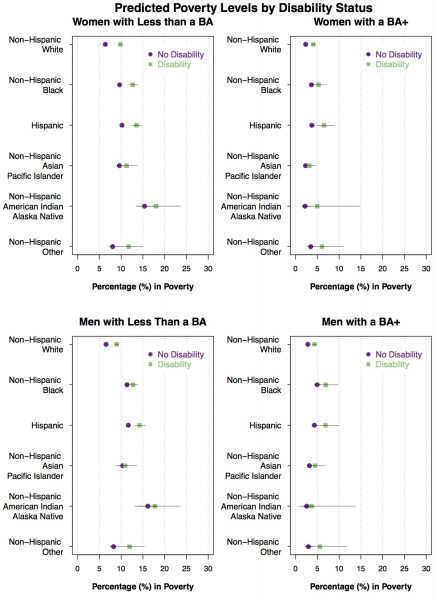
an accessible area in a subway station. Photo by Marcin Wichary, Flickr CC
We hear a lot about the gender pay gap and the racial wealth gap, but rarely about how disability also affects economic security. New research by Michelle Maroto, David Pettinicchio, and Andrew C. Patterson investigates how disability interacts with gender, race, and education level to influence economic stratification in the United States. The researchers analyze data from the 2015 American Community Survey (ACS), focusing on poverty status and total personal income (earnings, governmental income, savings). The ACS identifies people with disabilities as anyone who has cognitive, ambulatory, independent living, self-care, vision, or hearing difficulty. Instead of analyzing race, education, and gender separately, the researchers created 24 different groups where these identities intersect (e.g., black women with a bachelor’s degree, white men without a bachelor’s, Asian Pacific Islander women with a bachelor’s, and so on).
Overall, the effects of disability on poverty were strongest for women, racial minorities, and those with low levels of education. Specifically, disability had the largest effects on poverty for black and Hispanic women with low levels of education. White and Asian men with high levels of education were the least affected. In other words, if individuals already have racial, educational, and gendered privilege, these components may insulate people with disabilities from falling into poverty — in this case, highly educated white and Asian men. On the other hand, women and racial minorities who are already at a greater risk of poverty do not have that insulation.

In terms of total income, disability had the largest negative effect on the most advantaged groups, particularly for men with higher levels of education. But even though more advantaged men with disabilities took the greatest hit in terms of income, they still averaged more total income — about $63,000 per year — than other groups. Less-educated women with disabilities overall earned only about $28,000 per year and women of color in this category earned even less. In other words, those with more markers of privilege have more to lose, but the more disadvantaged groups still end up at the bottom. This research shows that disability disadvantages all groups economically, but the ways it combines with other social statuses influences how groups experience economic insecurity or privilege.

Comments